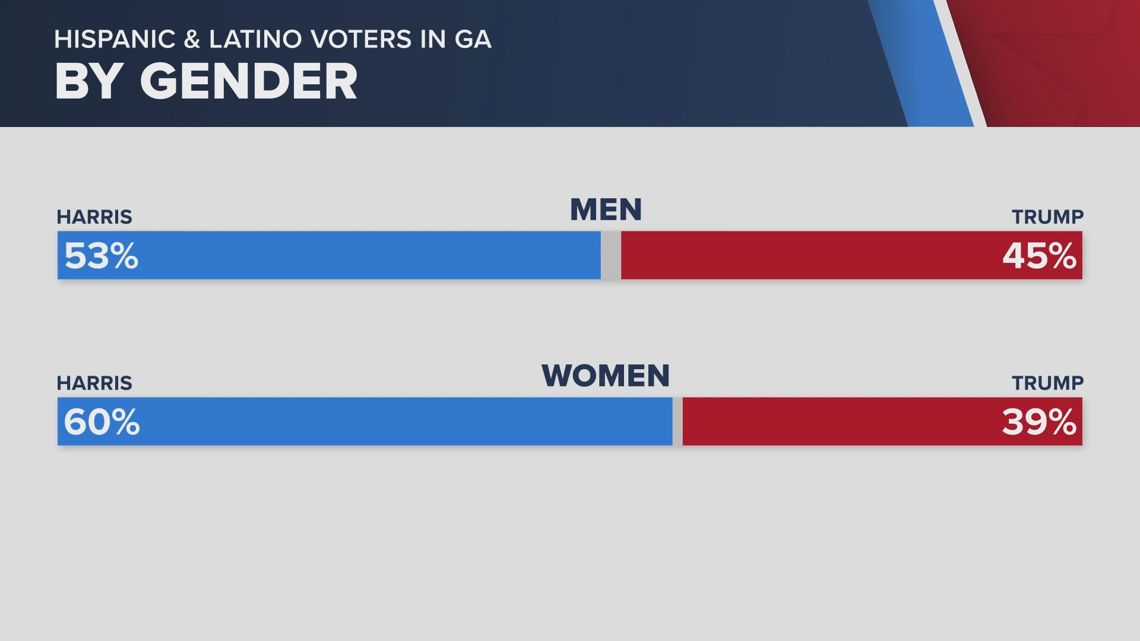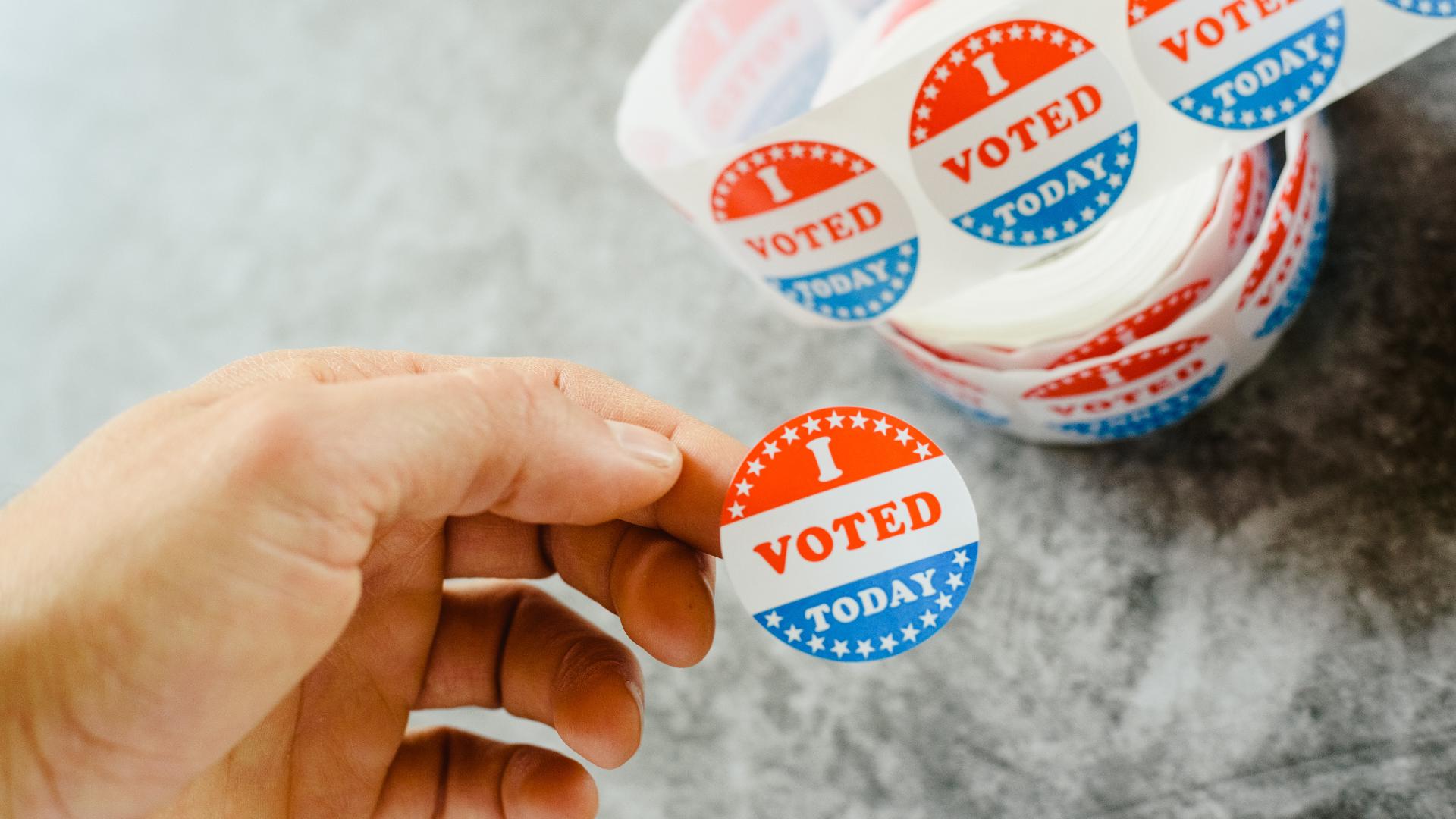ATLANTA — They're the fastest growing race in the country and their vote made a difference this presidential election.
NBC's national exit poll shows President-elect Donald Trump gained significant support among Black and Latino voters. Especially in Latino men, who favored Trump by 10 points after backing President Biden by 23 points in 2020.
In Georgia, Vice President Kamala Harris won the majority of Latino votes in the state, but similar to the national polls, support from Republican Latino voters grew. Despite the outcome, many Latinos in the metro are left feeling uneasy after seeing the results.
"We all feel a little bitter. Definitely concerned with the result of the election and a little bit frustrated as well," Adelina Nicholls said.
Nicholls is the Executive Director of the Georgia Latino Alliance for Human Rights and GLAHR Action Network (GAN). She and hundreds of volunteers worked tirelessly since March to mobilize Latino voters in Georgia no matter their political views.
"Canvassing and knocking doors, talking to people and attending community meetings all over the state. But we have to understand that sometimes we win and sometimes not. So based on that, it's like, 'OK, what are we going to do next to continue working organizing and fighting for what we think is right for communities of color,'" Nicholls said.
The day after the election, GLAHR fielded several calls from Latinos in the state asking what happens next.
"We don't have all the answers now, but we will continue organizing, informing our community about their human and civil rights and even constitutional rights. We'll organize against racial profiling, discrimination or deportations, and we will continue moving forward," Nicholls said.
According to NBC exit polls, in Georgia, Latinos made up 8 percent of the vote. That's less than the previous election. About 53 percent of Latino men voted Democrat while 45 percent voted Republican. And 60 percent of Latinas voted Democrat while 39 percent voted Republican.


Many of those voters come from immigrant families who have been in the state for years, but many are from a younger generation born and raised in Georgia.
"This was my first year voting! I turned 18 in 2020 so I couldn't then," Joe Soto said, who is now 22.
He said he knew he had to exercise his right when he got old enough. Soto was born in Georgia, but his family is from Nicaragua.
"When I got to the poll, I got a little nervous, but it was smooth and easy after that. I left feeling like I did my part. Coming from an immigrant family, you're not just voting for yourself. You're voting for your family members, and the ones who can't. It's our vote," Soto said.
That's why he was excited to see so many Latinos turned out at the polls.
"Especially when I saw the early voting numbers. I was like, 'Oh my gosh, this is great!' A lot of people, especially, you know, the youth, is going out and doing their job to go out and vote," Soto said.


The results on election night weren't what he was expecting, but he's hopeful about the future for Latinos because of the turnout.
"I expect to see a bigger push on the immigrant agenda, and it is very fearful for us. But I feel like seeing all these voters go out and seeing the turnout be so big, primarily, like the youth and the younger generation being active, will also make them more politically active," Soto said.
Nationally, Republican support among Latinos has grown the last three general elections. While the Democrats have been able to pull a large number of support across the country, Vice President Harris only pulled 52 percent while Former President Trump pulled 46. That's the highest percentage a Republican candidate has pulled over the last three elections.


"I think it requires a deeper analysis, but my take on that is, I think it's about class. It's about immigration status and communities or Latinx communities that they are not bothered with detentions or deportations," Nicholls said.
She said another factor could be that the Latino vote has been separated over time and isn't united.
"We do think that the vote must be a collective vote, meaning that if I have that privilege to vote, I have to thinking about my community and the needs of this community of color and of vulnerable communities," Nicholls said.
In conjunction with other organizations in the state, Nicholls said the Georgia Latino Alliance for Human Rights and GLAHR Action Network (GAN) is focused on educating Latinos in the state moving forward and supporting them over the next four years.
"We have to keep hope. I think it's the best time to mobilize, to organize, to recharge ourselves, to continue educating all these young Latinos and Latinas. Let's keep fighting for justice, and let's keep working for a better a community that gives dignity to all communities that are suffering some kind of injustice," Nichols said.

